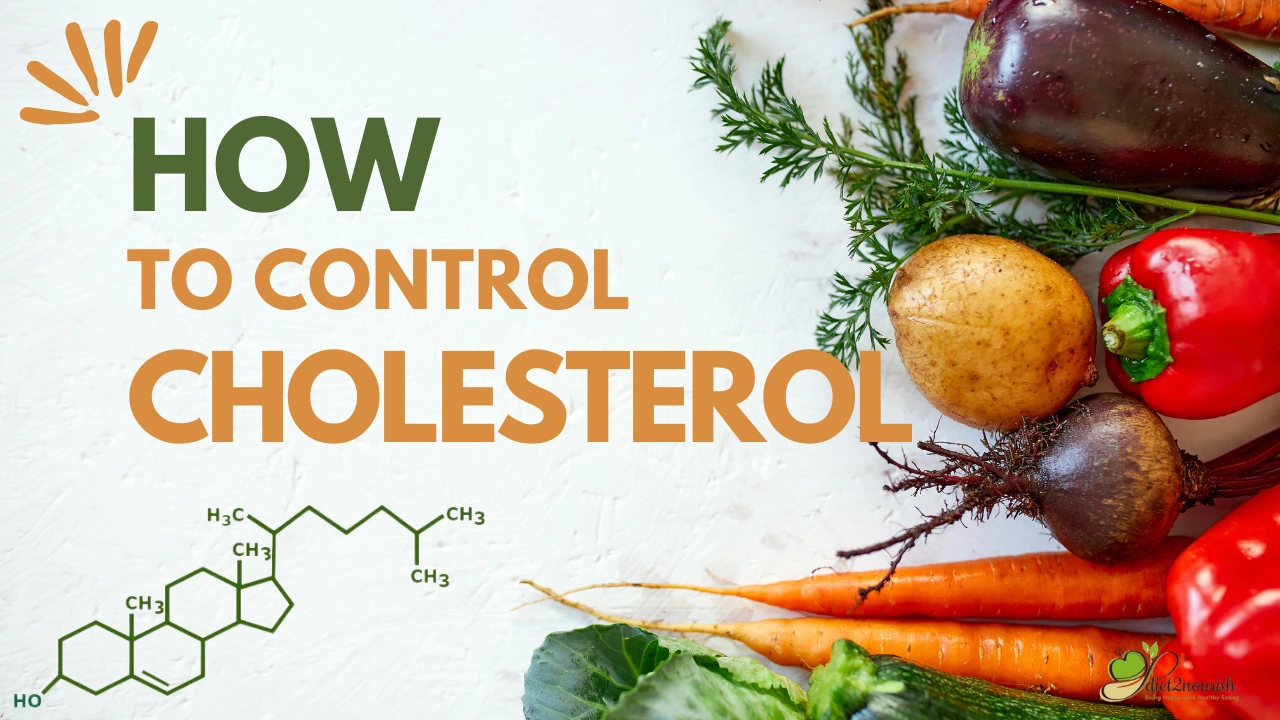How to Control High Cholesterol
Cholesterol is a waxy substance aimed at regulating the proper functioning of the body. It acts as a key component of all the cell membranes as well as for hormone production among the other set of activities. It is, however, important to distinguish between good and bad cholesterol for effective cholesterol management. LDL, or low-density lipoprotein, is considered bad cholesterol, whereas HDL, or high-density lipoprotein, is considered a good one. LDL is bad since its accumulation in the arteries can form plaques which lead to the narrowing down of arteries and can increase the risk of cardiovascular diseases such as strokes, and heart attacks, among others.
The major health concern around the globe these days is the rising cholesterol level in this fast-paced world. Bad cholesterol comes with a set of cons and can leave an overall negative impact on health. While medications are an effective way of dealing with this cholesterol, some other organic ways are also needed to combat this life-hampering element, such as adopting a wholesome lifestyle.
In this article, we will adopt some organic ways of controlling elevated levels of cholesterol to promote better heart health.
Breaking Down the “Bad” In Your Body – Lessen Your Cholesterol Levels with These Organic Tips
1. Embracing a Healthier Heart Everyday – Figure Out Your Diet
If you are on the hunt to figure out “how to control cholesterol,” then the very first step you need to take is toward your diet. A well-balanced and nourished diet has a central role to play in managing elevated cholesterol levels. Some of the dietary recommendations which you can incorporate into your routine include:
- Stop consuming trans or saturated forms of fat. Instead, replace them with healthier alternatives such as seeds, nuts, olive oil etc.
- Start relying on fiber-rich foods such as fruits, vegetables, and whole grains, which can help in the reduction of cholesterol absorption in the bloodstream.
- Foods that can help you to lower your cholesterol – If you are hunting for foods that lower cholesterol fast, then you must start by consuming wholesome foods such as oats, barley and whole grains, beans, eggplant and okra, vegetable oils, nuts, fruits like apples, strawberries among the others.
2. Focusing More on Movements and Motions – Adopting A Regular Workout Routine
If you are somebody who is tired of elevated cholesterol levels and can’t have their heart health figured out, then merely sitting is not going to work out for you. Sometimes, along with avoiding foods, you have
to get up and make some moves to get it right there. Reducing cholesterol levels become more of a cakewalk when you engage yourself in a routine workout and physical activities. You can start by setting a minimum aerobic routine of around 150 minutes per week for optimal results. You can start by doing brisk walking, jogging, cycling or swimming. With regular exercises, you can aim for higher HDL and can easily lower your LDL.
3. Maintain a Healthier Shape and Weight
Obese weight levels are one of the greatest contributors to higher cholesterol levels. It is utterly important to work on your weight and be aware of the foods to avoid high cholesterol. The very first thing you can do to manage your weight is to cut down on extremely fatty and junk foods which are deep-fried.
Adopt and embrace a lifestyle where you are consuming meals like salads and wholesome proteins and cut down on excessive sugars and fats. Gaining is easier than shedding weight. So, be very particular with what you consume and watch out for your calorie intake too. Losing even a small amount of weight can have a positive outcome on cholesterol levels.
4. Shed off toxic habits – Quit smoking and Extreme Alcohol Consumption
Smoking can damage your blood vessels and can also lower the levels of good cholesterol levels in the body. This is how it becomes more challenging to control the levels of cholesterol in the body. To reduce the risks of heart disease, it is crucial to shed off toxic habits of excessive smoking. This is imperative to improve cholesterol profiles too.
If you are an avid drinker, then excessive alcohol has a negative impact on cholesterol levels. It can increase the levels in a shorter span of time, leading to a highly uncontrollable situation. So, it is crucial to watch your alcohol intake, which shouldn’t be more than moderate levels.
5. De-clutter Your Mind – Manage Your Stress Levels
If you are stuck in the shackles of overthinking and putting too much strain on your mind, then that is leading you to nowhere but elevated levels of stress. Stress contributes to an increase in cholesterol levels, and it can lead to hampering overall cardiovascular health. Managing stress levels here is quite critical, and you can do so by incorporating some stress management techniques.
Indulge in regular Yoga, meditation and some deep breathing exercises, which can ease your nerves. Engage yourself in hobbies that bring out utmost joy and relaxation. Keep your mind and body in the happiest mental and physical shape possible for lowering your stress and, consequently, cholesterol levels.
6. Keep an Eye on Your Cholesterol Levels – Monitor and Track Your Progress
If you wish to witness consistent outcomes, then you need to work on monitoring your progress. Keep yourself updated on your cholesterol levels by visiting your healthcare provider. This is how you can be informed of what is going right and wrong in the management of your cholesterol levels.
Keep making necessary adjustments to your routine and lifestyle for optimal results and cholesterol profiles. Try to manage things the organic way. Sometimes, avoiding medications and managing things organically can make it all figured out for you. So, keep managing and monitoring for optimality.
From Plaque to Protection – Just in Case, Lifestyle Changes Don’t Work……
Sometimes lifestyle changes don’t work alone; it requires a robust solution like medications and continuous recommendations by healthcare providers. So, if you are serious about achieving consistency in your cholesterol levels, then working collaboratively is crucial. If your doctor recommends proceeding with certain medications, then you must curate a dedicated routine toward that medication schedule. Lifestyle changes can help you to lower your doses of medications too.
Empower Yourself Against High Cholesterol – Wrapping It Up
Controlling high cholesterol demands a comprehensive approach that combines a wholesome dietary schedule like fruits to lower cholesterol, along with regular physical activity and some other lifestyle alterations. Consistency and long-term commitment to a healthier lifestyle is the key to success in managing your cholesterol level.
Frequently Asked Questions (FAQs)
A: You cannot and should not completely eliminate cholesterol from your diet because cholesterol is involved in some major functions that are taking place inside our body. However, you can make some healthier choices by eating food which has a low level of bad cholesterol and high levels of good cholesterol.
A: Sometimes, only lifestyle changes may not be enough to control high levels of cholesterol in your body. Therefore, you can ask your healthcare expert for some advice regarding taking medications for lowering your cholesterol level.
A: High cholesterol levels can be inherited from parents to children through genes so it is important to be well aware of your family history regarding cholesterol level and take proper steps so as to avoid any major complications.
Note: Don’t forget to consult your healthcare provider before making any significant changes to your lifestyle especially if you have any prevailing medical condition.

